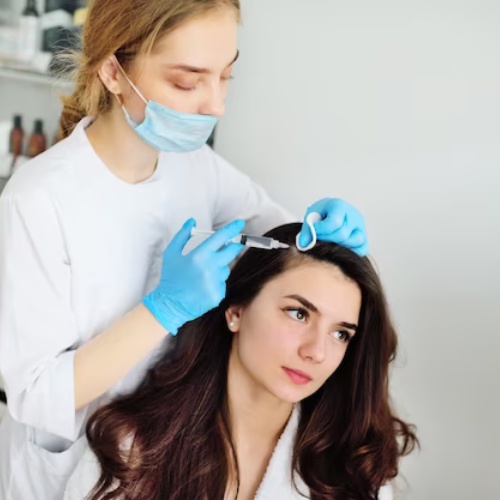Hair loss can be a sensitive topic, affecting not only our appearance but also our self-esteem. Fortunately, advancements in non-surgical hair restoration have provided a glimmer of hope for those seeking to regain a fuller head of hair without the need for invasive procedures.

Non-surgical hair restoration techniques have gained popularity in recent years due to their effectiveness and minimal downtime. Here's what you need to know about this exciting option:
Understanding Non-Surgical Methods: Non-surgical hair restoration primarily involves treatments that stimulate hair growth or improve the appearance of existing hair. These methods range from topical solutions and laser therapy to platelet-rich plasma (PRP) injections.
Topical Solutions: Over-the-counter and prescription topical solutions, such as minoxidil, can help slow down hair loss and promote regrowth. These are typically applied directly to the scalp.
Laser Therapy: Low-level laser therapy (LLLT) devices use red light to stimulate hair follicles, encouraging them to grow thicker and stronger hair.
Platelet-Rich Plasma (PRP): PRP therapy involves drawing a small amount of your blood, processing it to concentrate the platelets, and then injecting it into the scalp. Growth factors in these platelets have the ability to activate hair follicles.
Minimal Discomfort and Downtime: One of the significant advantages of non-surgical hair restoration is the minimal discomfort and downtime associated with these treatments. Most procedures are performed on an outpatient basis, allowing patients to resume their daily activities shortly after.
Results May Vary: It's essential to have realistic expectations when considering non-surgical hair restoration. Results vary from person to person, and the effectiveness of these treatments depends on factors like the cause of hair loss and individual response.
Consultation Is Key: To determine the most suitable non-surgical hair restoration option for you, it's crucial to consult with a medical professional or hair restoration specialist. They can assess your specific needs and recommend the best approach.
Complementary Care: Non-surgical methods can also be used in conjunction with other hair restoration treatments for enhanced results.
Non-surgical hair restoration offers hope to those dealing with hair loss, providing viable options for regaining confidence and a fuller head of hair. If you're considering these treatments, consult with a qualified specialist to explore the best approach for your unique situation.


No comments yet